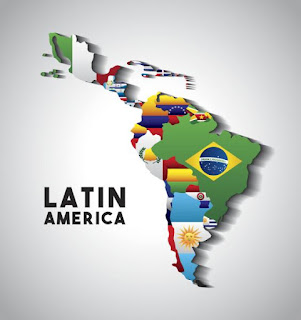Week 6: Fate Explored in Latin American Literature
Fate Explored in Latin American Literature
This week's readings all shared fate as the common theme highlighted in each story. The stories all had the protagonist sharing details of their lives such as where the cities they live in or grappling with traumatic childhood experiences, but each story highlighted the different choices a person may take or the options they exhaust in the end "Que sera, sera"; translation: what will be, will be; fate will always have its way.
In "The Garden of Forking Paths" by Jorge Luis Borges, the protagonist Yu Tsin, a spy for the German Reich, is in the midst of a desperate attempt to avoid being captured. In his attempt to escape, Yu Tsin encounters Stephen Albert, a sinologist and an expert on the antique book "The Garden of Forking Paths" Yu Tsin journeys to a parallel universe where his choices may render different outcomes. Still, in this one, he is fated to die.
In "Death Constant Beyond Love" by Gabriel Garcia Marquez, we read the story of a senator who is fated to die in six months due to a fatal illness he is hiding. Despite his illness, the senator continues his campaigns, and he delivers moving speeches producing illusionary images that overwhelm his audience and win him votes. However, The senator is carrying on an illicit affair, and once it becomes exposed, the deepest fear of dying alone comes true, as everyone abandons him in the end.
In Isabel Allende's "And of Clay Are We Created," we follow news reporter Rolfe Carle as he is on the scene of a Columbian city that has just been devasted by a volcano eruption. Rolfe is a seasoned professional, but as he reports on a little girl trapped in a mud pit with only hours to live unless help arrives in time, his professional demeanor fades. He becomes personally invested in trying to ensure little Lilly's rescue. Unfortunately, Lilly's rescue equipment does not make it in time. Rolfe is left repeatedly going over the footage of those days with Lilly, trying to find what he could have done differently that would have rendered a different ending. Every time Rolfe goes through the footage, he concludes that fate will be what it is despite exhausting all the options.
"I Speak of the City" and "Central Park" by Octavio Paz describes a symbiotic relationship between the inhabitants of the city and the city itself. Through Paz's dark description, he clarifies that the city is dead because the people in the city are dead; the city doesn't kill dreams; it's more that people let their dreams die once they are in the city. This poetry again shows that fate will have its way, despite circumstances or places.
Teaching Activities
" Death Constant Beyond Love," The Garden of forking Paths, and "And of Clay We Are Created" all are works of literature that use magical realism to convey emotions and ideas.
Discuss with the class what magical realism is; read this article aloud to help students understand what elements fit the magical realism genre.
Open discussion about where they have seen examples of magical realism in other works of literature or movies.
Pop Culture Connection
"Like Water for Chocolate" is a popular Mexican romantic novel later turned into a film in 1992. The film and novel fit the genre of magical realism. Watch this short clip, ask students to pay attention to the unrealistic happenings taking place in an everyday setting in this clip.
Activities
Ask students to write of an experience when they were presented with various choices, ask them to describe how they concluded on a final choice and where it led them. Ask students to include if they believe the outcome would have been different if they had made a different choice.
References
Aged Quill. The Garden Of Forking Paths. 2017. Web. 8 Aug. 2021.
Cdn.theatlantic.com. Web. 8 Aug. 2021.
Jedmond Fish. And Of Clay Are We Created. 2021. Web. 8 Aug. 2021.
Like Water For Chocolate Wedding Cake. 2021. Web. 8 Aug. 2021.
"Octavio Paz | Poetry Foundation." Poetry Foundation. N.p., 2021. Web. 8 Aug. 2021.
"What Is Magical Realism." Master Class. N.p., 2020. Web. 8 Aug. 2021.








Comments
Post a Comment